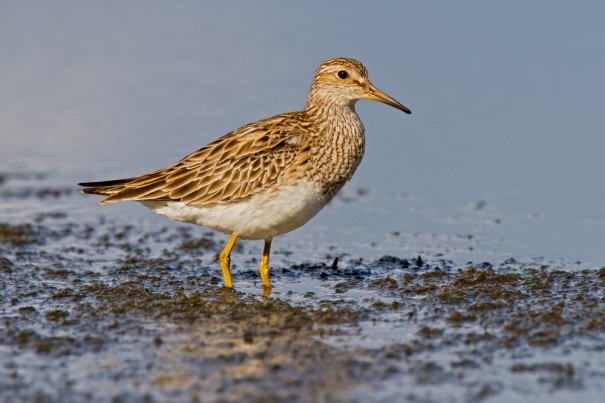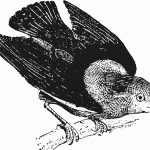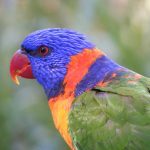
This bird species needs little sleep to be at its best. Image: Glenn Price/ Shutterstock
Is beauty sleep overrated? For some bird species it is.
In a world of constantly increasing working hours, prolonged wakefulness is a widespread phenomenon. Certain jobs restrict employee’s sleep time and others requiere them to work at night. This may seem worrying, as sleep-deprivation is often linked to decreased performance — a troublesome thought if your job requires you to operate a four tonne forklift — but scientists studying breeding birds in continuous Arctic daylight may challenge this view.
Researchers from the University of Western Australia studied a population of shorebirds (pectoral sandpipers) from the time the females were fertile until they were incubating eggs. Sandpipers are one of the few polygynous birds that breed under constant daylight. Outside of the Arctic, the setting sun might limit the time available for visual displays, but in the high Arctic, where the sun never sets, males have the opportunity for round-the-clock territorial and courting behavior, limited only by their need to sleep.
“During the breeding season, male pectoral sandpipers that are to be successful mating are busy: they must defend their territory, engage in physical fights and competitive flights with other males and court choosy females,” says postdoctoral research fellow Dr John Lesku of The University of Western Australia. “Evolution has found a way to circumvent the seemingly inescapable biological drive to sleep, as some males are able to maintain high performance on little sleep for long periods of time — an unprecedented feat.”
Using a datalogger, the researchers recorded the brain activity of males on their territories in the tundra. This data showed that males fell asleep within seconds after they stopped moving. Hence, the extremely active males were also extremely awake birds, and more inactive birds slept more.
Researchers measured the activity of the male birds using microchip tags. They identified a great deal of variation in the time males spent awake during the three week breeding season. “In the most extreme case, a male was active more than 95 per cent of the time for 19 days,” says Lesku, co-author of the paper recently published in the journal Science.
“By determining genetic paternity of virtually all chicks on the study site, we found that males that slept the least were able to maintain high waking performance and ultimately interacted with more females and sired more young,” Lesku says.
These results were surprising to the researchers, since humans and other animals handle sleep loss poorly, with decrements in memory, attention, motivation, and hand-eye coordination. “Our study provides the first direct evidence that sleep loss can be adaptive,” states Lesku. “[But] I doubt that a man could stay awake for several weeks while maintaining his ability to convince choosy females to mate with him!”






